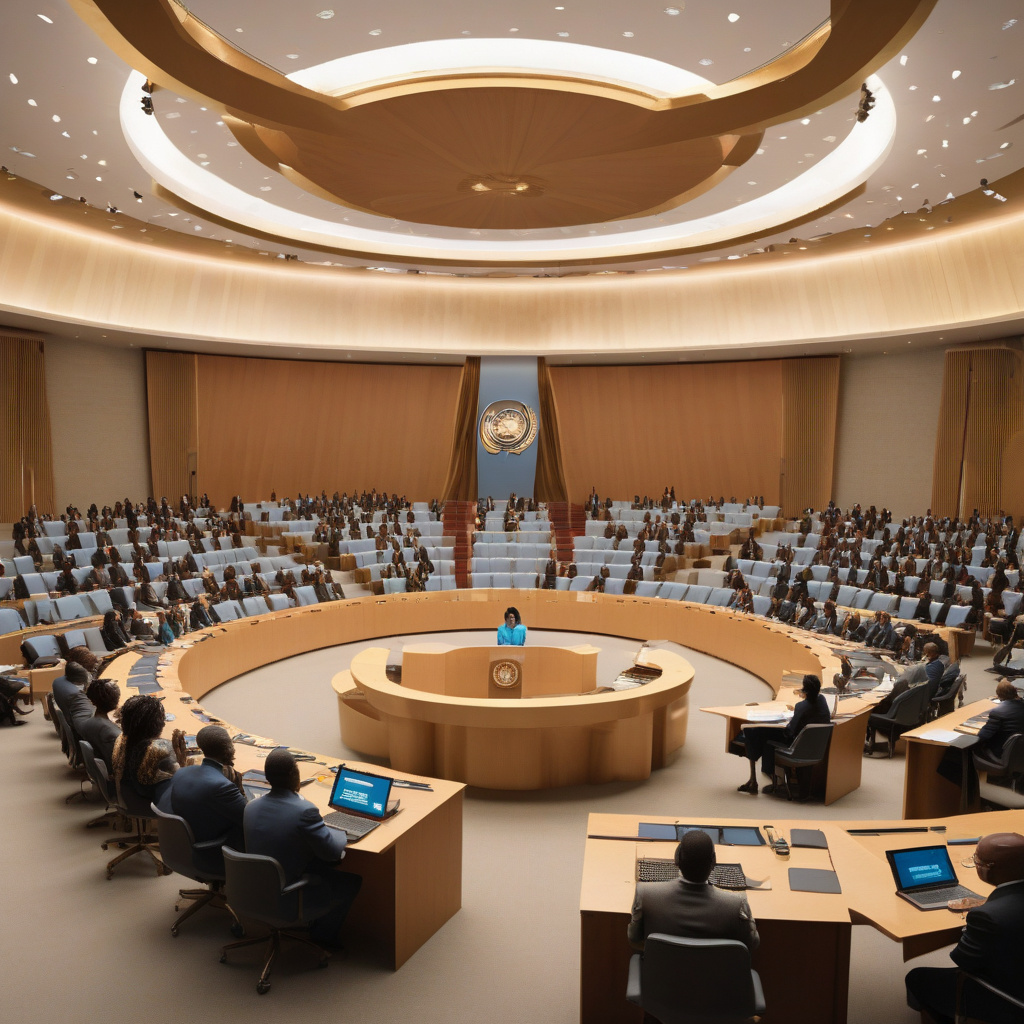Global Effort Needed: UN Calls for Unified AI Regulations to Combat Inequality
In a world where technology is advancing at an unprecedented pace, artificial intelligence (AI) stands out as a transformative force with the power to revolutionize industries, economies, and societies. However, as AI becomes increasingly integrated into our daily lives, concerns about its potential to exacerbate existing inequalities have come to the forefront. With only 15% of countries currently having formalized AI strategies in place, there is a pressing need for global cooperation and unified regulations to ensure that innovation does not widen the gaps between the haves and the have-nots.
The United Nations, recognizing the critical importance of addressing these issues, has called for concerted international efforts to establish clear guidelines and frameworks for the ethical development and deployment of AI technologies. Speaking on behalf of the UN, the organization’s tech chief highlighted the risks posed by unchecked AI innovation and stressed the urgent need for proactive measures to prevent further disparities on a global scale.
One of the key concerns surrounding the unchecked advancement of AI is its potential to reinforce existing social and economic inequalities. Without proper regulations and oversight, AI systems run the risk of perpetuating bias and discrimination, leading to unequal opportunities and outcomes for different groups within society. For example, AI algorithms used in hiring processes may inadvertently favor certain demographic groups over others, perpetuating systemic inequalities in the workforce.
Moreover, the widening gap in AI capabilities between countries could have far-reaching implications for global competitiveness and economic development. As AI technologies continue to evolve rapidly, countries that lack comprehensive AI strategies and investments may find themselves falling behind, further widening the global technological divide. In the absence of a coordinated approach to AI governance, there is a real risk that the benefits of AI innovation will accrue disproportionately to a few countries and corporations, exacerbating existing power imbalances.
To address these challenges, the UN’s call for global rules on AI is a crucial step towards promoting a more inclusive and equitable AI ecosystem. By establishing common standards and principles for the responsible development and use of AI technologies, countries can work together to ensure that AI benefits are shared more equitably across societies. This includes promoting transparency and accountability in AI systems, fostering diversity and inclusivity in AI research and development, and safeguarding against the misuse of AI for malicious purposes.
Furthermore, global cooperation on AI regulation can help mitigate the risks of regulatory arbitrage, where companies exploit gaps or inconsistencies in national regulations to evade ethical standards or legal responsibilities. By harmonizing AI rules at the international level, countries can create a level playing field for businesses and ensure that ethical standards are upheld across borders. This not only fosters trust and confidence in AI technologies but also paves the way for sustainable and responsible innovation in the long term.
As we stand at a critical juncture in the development of AI, the need for global collaboration and unified regulations has never been more pressing. By heeding the UN’s call for concerted action on AI governance, countries can collectively shape a future where AI serves as a force for good, driving progress and prosperity for all. Only through inclusive and participatory efforts can we harness the full potential of AI to build a more equitable and sustainable world for current and future generations.
AI, Regulation, Inequality, United Nations, Global Cooperation












